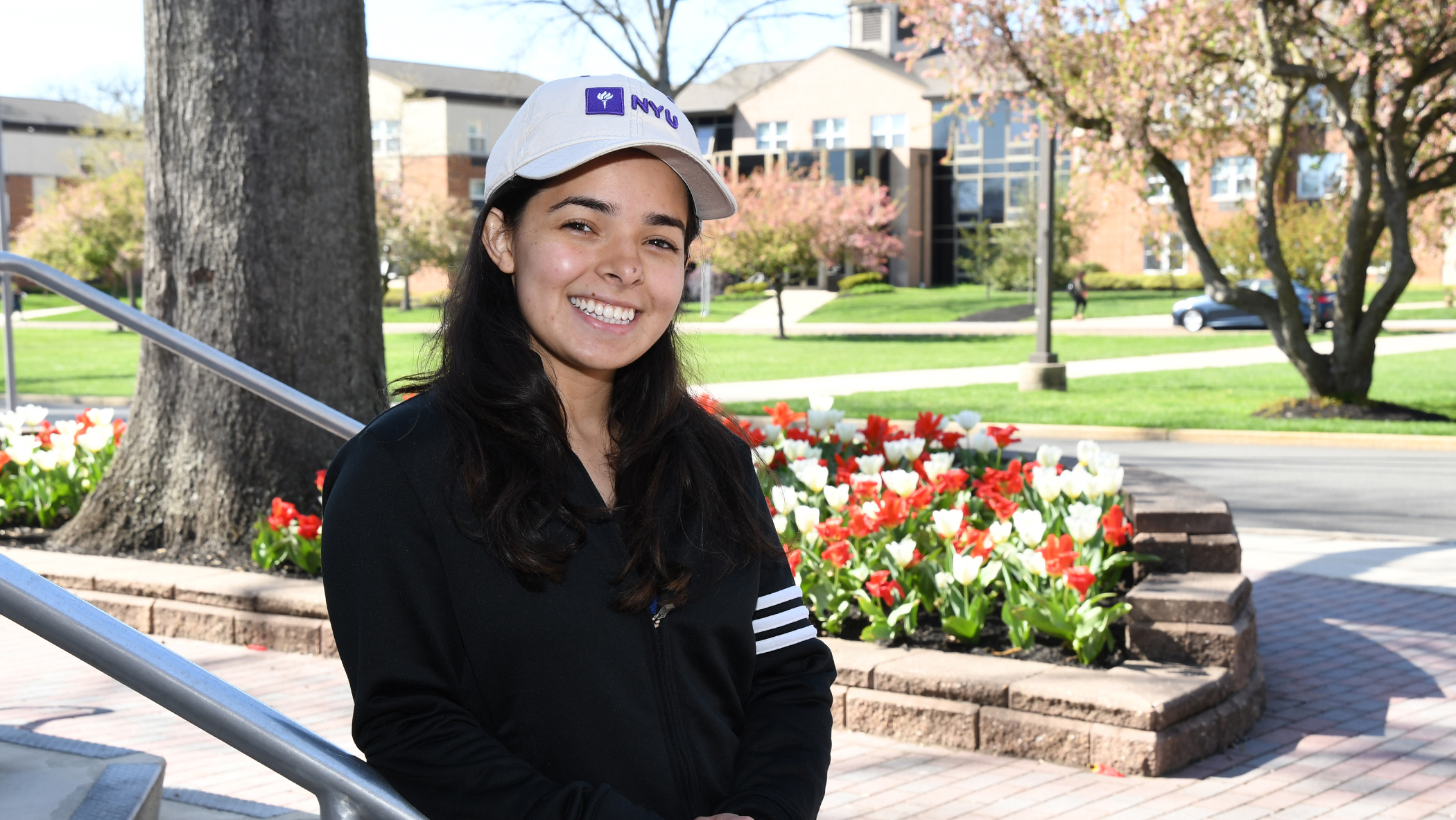Tuesday, May 1, 2018
Maria Chaves to study environmental toxicology at NYU
by Rachel Stengel '14
Maria Chaves loves to be out in nature, studying the large-scale impact pollutants can have on the environment and the micro-level effects they impose on the human body. The biology and environmental science double major has found the perfect formula to merge her two passions together — New York University's master's program in environmental health sciences. She will begin her studies in the environmental toxicology track this summer.
The program is housed in NYU's medical school; similar programs are typically incorporated into chemistry or public health departments. The Hamilton, N.J. native will have access to a top-tier research facility as NYU's medical school was recently ranked No. 3 in the nation for research and No. 1 in New York by U.S. News & World Report.
"I want to be down and dirty with the specifics of what's going on in the environment and how it affects the body," she says. "In this program, I'll be doing hands-on research and writing publications."
Through the program's heavy focus on biochemistry, biostatistics and epidemiology, Chaves will be solving real-world environmental problems using a medicinal approach.
"I’m really excited to take that big picture analysis that I’ve learned through environmental science to see how things like glutens and contaminants move through the environment into the human biological system and what they do to our bodies," she says.
During her time at Rider, Chaves partnered with Dr. Daniel Druckenbrod, associate professor of environmental sciences, to study dendrochronology, the scientific method of dating tree rings. They examined trees in Virginia's Shenandoah National Park using dendrochronology to compare the impact of environmental forces before and after the Clean Air Act was passed.
After earning her master's, Chaves hopes to one day pursue a doctorate to further her expertise in her field. Science has always been her passion and feels humbled that she understands her place in our ecosystem.
"It was a no brainer that I wanted to study science. I really feel blessed to have always had that sense of purpose," she says. "There’s nothing else I’d rather be doing than making new scientific discoveries and learning new things about how the world works."

